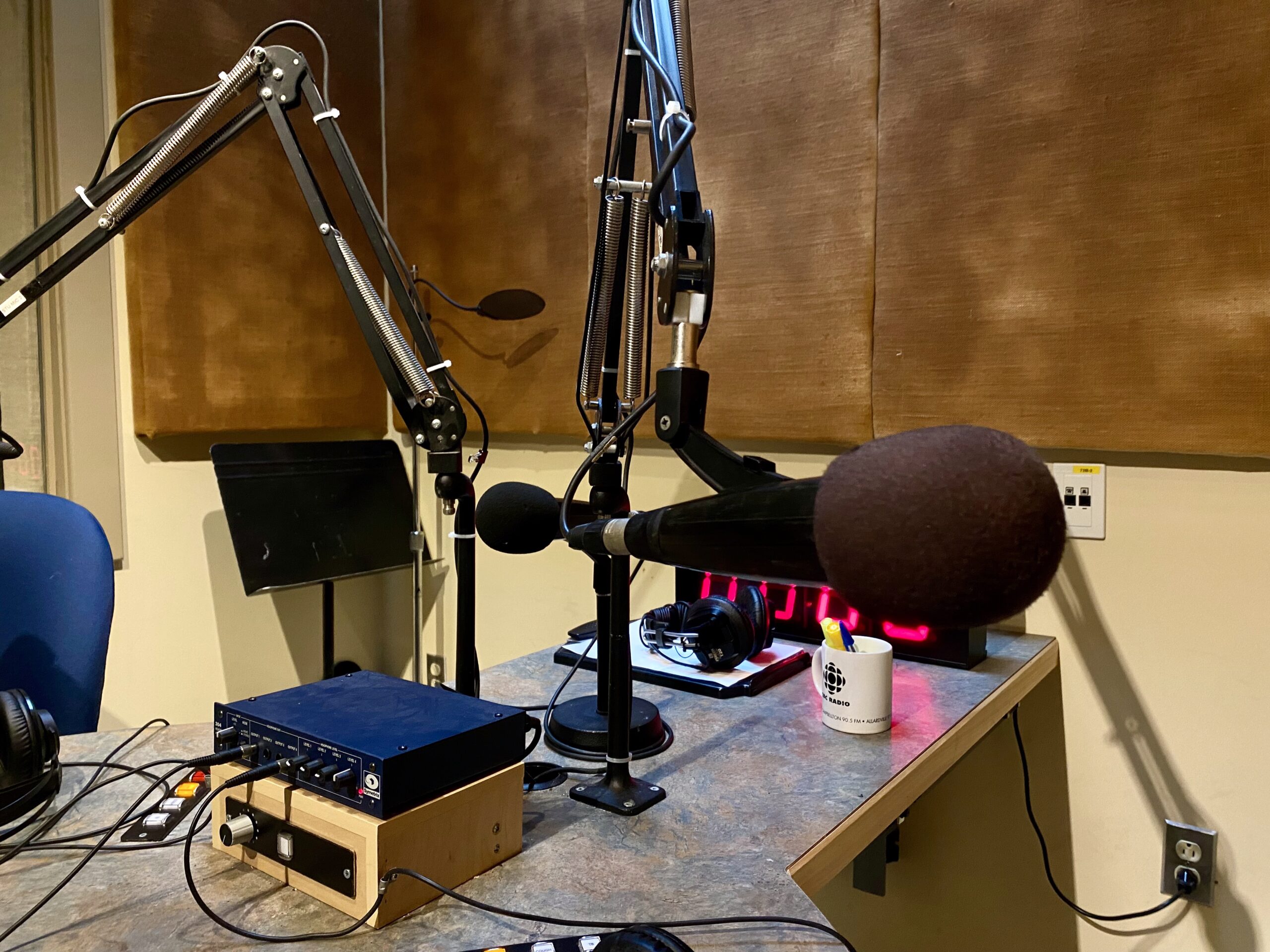Federal program makes a difference for local reporting
Local Journalism Initiative tries to fill gaps in coverage

caption
With newsrooms across Canada losing reporters in large numbers, the federal government's Local Journalism Initiative has put many journalists to work in underserved communities.For Erica Butler, a reporter at CHMA-FM in Sackville, N.B., a federal government program that funds local journalism has been essential to her community.
“I think the LJI is a good way to beef up local coverage,” Butler said.
She started full-time as a Local Journalism Initiative reporter in September 2020, shortly after the town’s only newspaper shut down. Since then, Butler has been covering local issues through CHMA, the campus and community radio station at Mount Allison University.
“People were very used to newspapers being the delivery mechanism, not so much local radio,” she said. “That’s been our hurdle. But slowly, we’re getting there.”
CHMA has built an online presence to complement its radio broadcasts.
“The biggest challenge is just getting the word out,” Butler said. “But when people find out there’s someone reporting on local stories, they’re very excited about it.”
The federal government launched the LJI in 2019 as a $50-million project to fund journalists working in underserved communities. The program provided up to $60,000 per year, per reporter in an effort to counter a decline in the number of local media outlets in Canada.
Ottawa renewed the program in March 2024 for an additional three years. It also announced in October a new Changing Narratives Fund stream to support the hiring of diverse journalists that would include Indigenous, Black and 2SLGBTQI+ journalists, and those with disabilities.
Study examines funding’s impact
University of King’s College professor Terra Tailleur and her colleague are looking at how widely the LJI is being used, what gaps it fills and who is being hired.
“Atlantic Canada as a whole tends to be largely uncovered by journalism academics in this country,” Tailleur said. “There’s not a lot of writing about the journalism ecosystem in the region.”
She said funding has made a difference, particularly for smaller publications.
“If you look at the list of news outlets in Nova Scotia that have received funding since 2020, it’s as long as my arm,” she said. “The Halifax Examiner, SaltWire, and the Guysborough Journal have all had LJI reporters.”
The Guysborough Journal, a small newspaper with just three reporters, employs two LJI-funded journalists. Tailleur says that means they can cover far more of that area of Nova Scotia, and that is very important.
Butler said the funding makes her role possible but doesn’t leave much room for growth.
“It hasn’t changed since 2020,” she said. “It’s not on the higher end of the scale, and there’s little room to buy equipment. By no means is it extremely generous, but it is livable for me in this small town.”
She also believes LJI reporters could benefit from union representation.
“At one point, I think there might need to be some kind of unionization,” Butler said. “We work for our home radio station, but we also work for the Community Radio Fund of Canada so it’s like having two bosses. It can be hard to navigate.”
Uncertain future as election nears
A previous funding program saw Meta, the parent company of Facebook and Instagram, support journalists through a partnership with The Canadian Press. That funding has since disappeared as Meta withdrew from the news industry in 2023.
Now, the future of the LJI is uncertain, particularly with a federal election coming up.
“The Conservatives under [Pierre] Poilievre haven’t been fans of public attempts to support journalism, so we will have to see,” Tailleur said. “But it does seem like it will be a huge loss if this funding opportunity disappeared.”
For Butler, the uncertainty is nothing new.
“The first year I started this job, I didn’t know if I’d have it after 12 months,” she said. “That has literally always been a concern for me.”
She believes the LJI has helped sustain local news in some areas but says it doesn’t solve the problem of news deserts — communities with no local media presence.
“The LJI isn’t a start-up fund,” she said. “It helps existing journalism organizations, but if a community has already lost its newspaper and never had a radio station, there’s nothing to apply for funding.”
Despite the challenges, Butler said federal support is crucial.
“I think it makes sense for the government to support journalism,” she said. “I think the threat to the CBC is probably greater than it is to other things that help support journalism right now.”
For now, she and other LJI reporters will keep doing their work — but what happens next will depend on the election.
“For the amount that gets spent on the LJI, it’s probably a very good use of funds,” she said. “I’m not sure if it’s actually one of the targets of a Poilievre Conservative potential future government or not — but yeah, that’s always been a worry.”
About the author

Ella Karan
Ella Karan is in the fourth year of the King's BJH program. Originally from South Africa, she enjoys photography and writing about culture, conservation...
